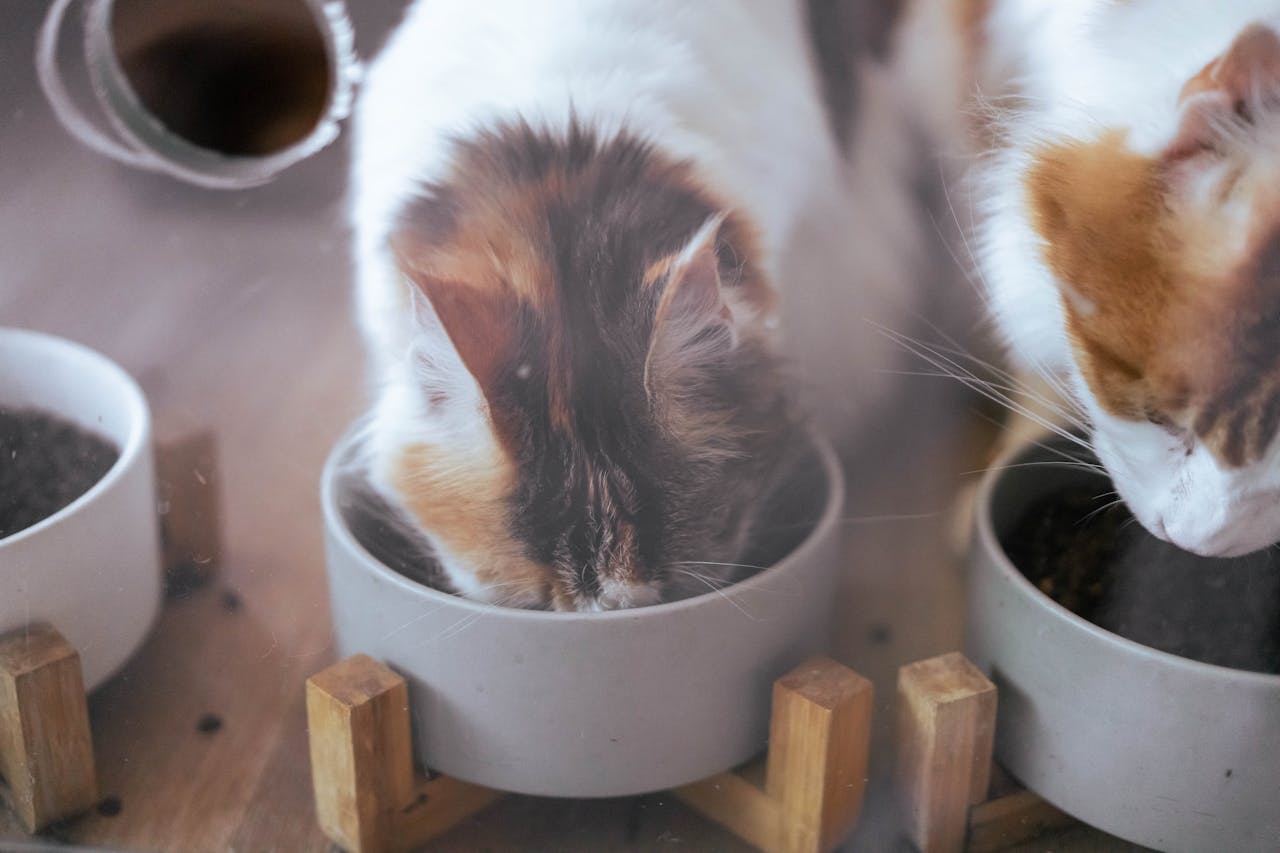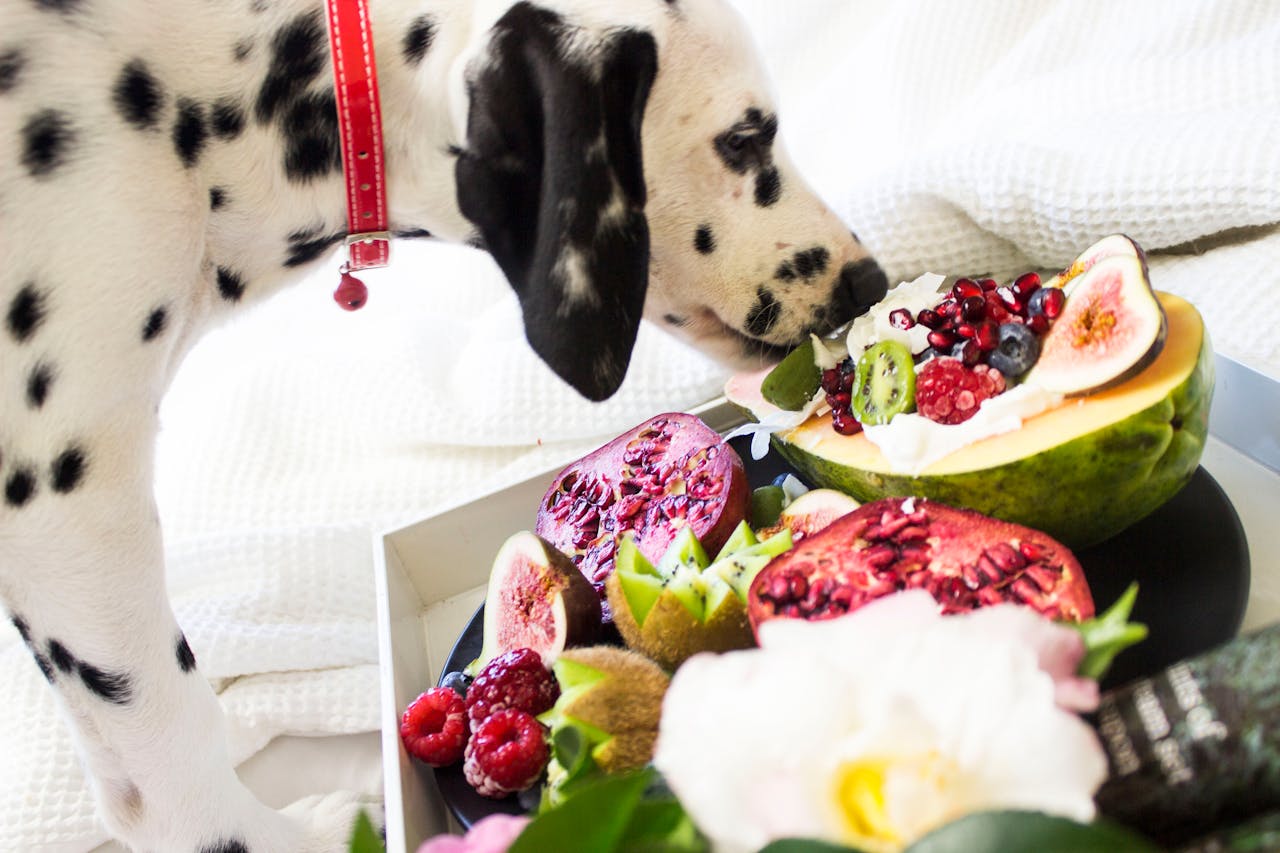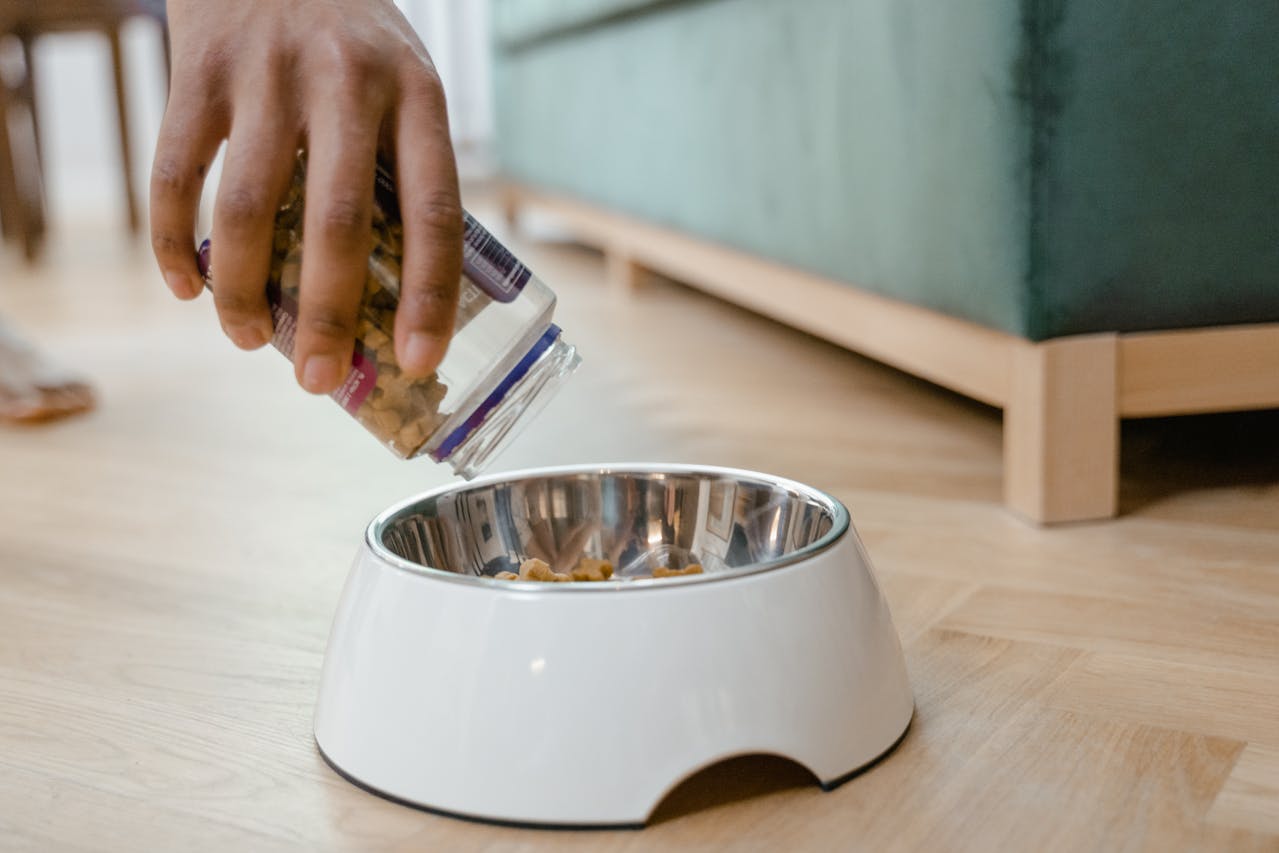Homemade Pet Food Recipes: Healthy and Nutritious
As pet owners, we always want the best for our furry friends. One way to ensure they’re getting high-quality, nutritious meals is by preparing homemade pet food. This can be a rewarding experience, not just for you but for your pet as well. Plus, you’ll have complete control over the ingredients, which means you can cater to any specific dietary needs, preferences, or allergies your pet may have.
In this guide, we’ll explore some healthy, nutritious homemade pet food recipes and offer tips to ensure a balanced diet for your pets.

Why Make Homemade Pet Food?
Control Over Ingredients
One of the main advantages of preparing your pet’s meals at home is knowing exactly what goes into their food. Commercial pet foods can contain preservatives, artificial flavors, and fillers that don’t necessarily benefit your pet’s health. By making homemade pet food, you can avoid these additives and ensure your pet is eating wholesome, natural ingredients.
Addressing Allergies and Sensitivities
Many pets suffer from food allergies or intolerances, which can be difficult to manage with store-bought foods. Homemade recipes allow you to eliminate allergens and tailor the meals to suit your pet’s unique dietary needs. You can also rotate ingredients to avoid sensitivities or create a diet plan that works around your pet’s health concerns.
Freshness and Nutritional Value
When you prepare meals at home, you’re serving fresh food packed with essential nutrients, unlike some processed options that may lose nutritional value over time. Fresh ingredients offer optimal health benefits, and they can lead to improved digestion, shinier coats, more energy, and better overall health for your pet.
Key Nutrients for Pets
Before diving into recipes, it’s essential to understand what nutrients your pet needs to thrive. Whether you’re cooking for a dog or cat, here’s a basic breakdown:
Dogs
-
Protein: Meat, fish, eggs (chicken, beef, turkey, lamb, or fish)
-
Carbohydrates: Brown rice, sweet potatoes, oats
-
Fats: Chicken fat, fish oil, olive oil
-
Vitamins and Minerals: Fresh vegetables (carrots, spinach, peas)
-
Calcium: Crushed eggshells or bone meal
Cats
-
Protein: Cats need a higher protein intake than dogs, so focus on high-quality meats like chicken, turkey, fish, or beef.
-
Taurine: An essential amino acid for cats, found in meat and fish.
-
Fats: Fish oil or chicken fat
-
Calcium: Bone meal or crushed eggshells
-
Water: Cats often don’t drink enough, so incorporating moisture into their food is important.
Healthy Homemade Pet Food Recipes
Recipe for Dogs: Chicken and Sweet Potato Delight
Ingredients:
-
2 boneless, skinless chicken breasts
-
1 cup cooked sweet potatoes (peeled and mashed)
-
1/2 cup steamed peas and carrots
-
1 tablespoon fish oil (optional, for added omega-3s)
-
1/4 cup brown rice (cooked)

Instructions:
-
Boil the chicken breasts until fully cooked, then shred them into bite-sized pieces.
-
Cook the sweet potatoes until soft, and mash them.
-
Steam peas and carrots until tender.
-
Combine the shredded chicken, mashed sweet potatoes, cooked brown rice, and steamed vegetables in a large bowl.
-
Drizzle with fish oil and mix thoroughly.
-
Let the food cool before serving.
This recipe provides your dog with lean protein, healthy carbs, and important vitamins and minerals.
Recipe for Cats: Turkey and Fish Feast
Ingredients:
-
1 cup ground turkey
-
1/2 cup canned tuna in water (drained)
-
1 egg
-
1/4 teaspoon fish oil or olive oil
-
1/4 cup cooked carrots (mashed)
-
1/4 cup bone meal (for calcium)
Instructions:
-
Cook the ground turkey in a skillet until fully browned and cooked through.
-
In a separate bowl, beat the egg and cook it like scrambled eggs.
-
Drain the tuna and add it to the cooked turkey.
-
Mix in the scrambled egg, mashed carrots, and a small amount of oil.
-
Sprinkle the bone meal into the mixture to ensure your cat gets enough calcium.
-
Let the meal cool to room temperature before serving.
This meal is high in protein, taurine, and essential fats, making it a balanced meal for your feline friend.

Tips for Making Balanced Homemade Pet Food
Consult Your Veterinarian
Before making any drastic changes to your pet’s diet, it’s essential to consult with your veterinarian or a pet nutritionist. They can help ensure that your homemade recipes meet your pet’s specific nutritional requirements. This is especially important for pets with underlying health conditions.
Avoid Harmful Ingredients
Some human foods are toxic to pets. Here’s a list of ingredients to avoid:
-
Onions and garlic (toxic to both cats and dogs)
-
Chocolate (toxic to dogs and cats)
-
Grapes and raisins (harmful to dogs)
-
Avocado (dangerous for some pets, especially birds)
-
Alcohol and caffeine
Use Supplements if Necessary
Even with a well-rounded homemade diet, some pets may require additional supplements to meet their nutritional needs. Calcium, taurine, and omega-3 fatty acids are commonly supplemented in homemade diets. Again, your veterinarian can advise you on the best approach.
Balance Portions
Make sure to feed the right amount based on your pet’s size, age, and activity level. Overfeeding or underfeeding can lead to health problems, so it’s important to monitor your pet’s weight and adjust portions accordingly.
Making homemade pet food is a fantastic way to ensure your pet gets fresh, nutritious meals tailored to their needs. While it requires a little extra time and effort, the rewards—healthier, happier pets—are worth it. By using simple ingredients like lean meats, fresh vegetables, and healthy fats, you can provide a balanced diet that supports your pet’s overall well-being. Remember to consult your veterinarian before starting and enjoy the process of creating meals your pets will love!












